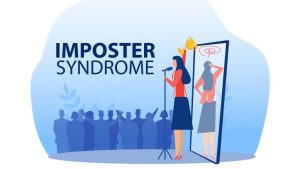Rewarding Employee Performance
 Publié le 12 November 2020
Publié le 12 November 2020
Keeping employees engaged and motivated is vitally important in order to ensure the continued success of a company. In addition to a fair salary, a solid benefits package and a supportive work environment, rewarding employee performance and offering regular recognition in the workplace can be highly effective forms of motivation.
Adopting a policy of employee recognition and bonuses for positive performance is beneficial to companies of all types. These performance bonuses and employee recognition programs should be crafted to include both financial rewards and non-monetary rewards. They can be used to highlight innovation and positive behaviour while taking advantage of new HR trends, such as gamification, as part of a plan to increase worker engagement.
The 3 Elements of a Good Employee Reward
A good employee reward should touch on three different areas in order to be the most effective:
- Recognition – A good reward recognizes specific achievements, such as the successful completion of a large project. This ensures that employees feel their extra effort did not go unnoticed. Lack of recognition is a leading cause of employee burnout, so it is very important to acknowledge employees.
- Appreciation – Everyone likes to hear that they made a difference. Employees want to know that their work and energy made a real impact on the company. This is especially important in larger companies, where employees need to know that they stand out amongst a large workforce.
- Compensation – A good employee reward needs to compensate a worker for their hard work and their time. This can either take the form of financial compensation or non-monetary rewards.
Financial Rewards
The most popular form of employee reward is also the most obvious: financial compensation. Money is undeniably the motivating factor in almost every level of business. When employees do a good job and a company reaches its goals a result, they have completely reasonable expectations of compensation in the form of fair salaries and benefits. When employees go above and beyond company goals and propel a business forward, an additional financial reward is often justified.
The most popular forms of financial rewards are commissions and bonuses. Commissions are much more common in sales-based environments. Here, rewarding employee performance is based on a system in place where employees receive a certain percentage of each sale that is completed or every new client who is signed to a contract.
Bonuses, alternatively, do not have to be tied to individual sales and contracts, but instead to overall goals. Commonly given at the end of a financial year, performance bonuses reward employees for reaching company-wide goals, and provide motivation for continued hard work and commitment in the workplace.
Non-Monetary Rewards
Positive behaviours and habits from employees deserve to be acknowledged and rewarded by company leaders and managers. Non-monetary rewards can be just as appreciated as financial ones. Non-monetary rewards also have the added benefit also of feeling more unique, and therefore actually can be more of a motivating force than traditional bonuses when rewarding employee performance.
When rewarding positive behaviour, it is best to keep the rewards strictly non-financial. For example: a monthly pizza lunch supplied by the company, while acknowledging it is because employee conduct has remained exemplary. Alternatively, if a big project has required significant overtime and extra hard work on the part of the employees, simply letting them head home an hour or two early the following week would likely be received very warmly and taken as a sign of appreciation.
Rewarding Innovation
In addition to financial compensation for reaching business goals, it can be enormously beneficial for companies to reward positive behaviours which continue to move the company forward. Rewarding a company culture of innovation is beneficial to both employees and employers. It can be easy to fall into comfortable patterns while a company is relatively successful, but rewarding new ideas and innovative thinking ensures that employees will continue to think outside traditional norms.
For example: an employee at a large marketing company devises a new campaign specifically designed to target a key demographic. It does not fall in line with the traditional marketing practices of the company but after a trial period the results show an increase in audience participation, opening up a new client base. By acknowledging and rewarding this employee for their growth mindset through a performance bonus, increased responsibilities or another form of compensation deemed appropriate, the company is really rewarding an innovate solution.
Gamification and Rewards
A new HR trend that is emerging in the business world is the gamification of various parts of the work process. Gamification is where the applications and systems of games and competitions of applied to workflow. It has been proven to be an effective way of rewarding employee performance and keeping them engaged with company goals, in addition to inspiring a bit of friendly inter-office competition.
Like any game, it is most efficient when there is a prize to be won. It does not need to be extravagant or expensive in order to provide the necessary motivation. For example: a simple way to apply the principles of gamification in a sales environment would be to track the number of customers who recommit to new contracts after the initial agreement.
A large leaderboard in the office can be used to track results on a daily or weekly basis. The employee with the highest amount of customers who sign a new contract is declared the winner. Prizes and rewards could include a gift card to a local restaurant, or an extra afternoon off from work.
Avoiding Favouritism
In the business world, good leaders understand how important it is to avoid even the appearance of favouritism or preferential treatment. Such actions are inappropriate on the part of company leaders and actively works to undermine the morale and cohesion of the workplace. Having a codified reward system in place will also ensure that all rewards are offered in a fair and unbiased manner.
The best policy is to ensure that tangible rewards, such as bonuses and commissions, are given for tangible results, i.e. increased quarterly profit numbers, expanded consumer base or a completed project. By rewarding results that are plainly visible and supported by evidence, it makes company policy clear with no risk of favourtism.
Rewarding employee performance can be a highly effective method to keep employees motivated and working toward the success of a business. Financial rewards and non-monetary incentives provide recognition, appreciation and compensation for employees who have worked hard and put in the extra effort. By using a codified reward system and innovative policies such as gamification, it will ensure that employees feel properly and fairly rewarded.







